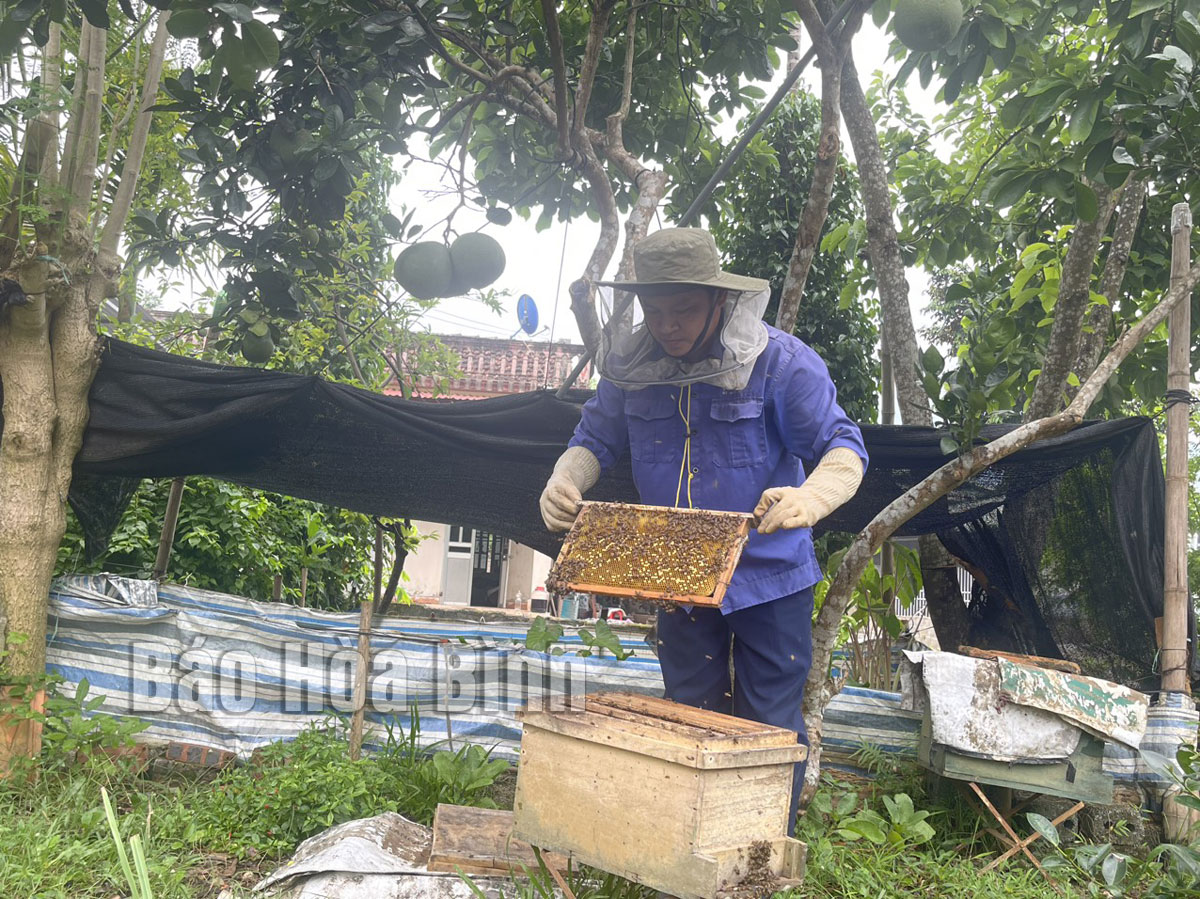



Mr. Pham Van Toan, the director of Pham An agricultural production and consumption cooperative in Hung Thi commune (Lac Thuy) is checking the process of beekeeping for honey of the member households.
Pham An agricultural production and consumption cooperative has 25 members, they are mainly engaged in agricultural production, in which, more than 10 member households have many years of experience in beekeeping for honey. The members of the cooperative have maintained more than 700 colonies of honey bees, with an average yield of 7 quintals to 1 tonne of honey each time. As bees absorb the natural forest nectar seasonally, they are absolutely fed with the added sugar or other chemicals, so the quality of honey is guaranteed, and sold out right after being produced. Over the past two years, honey has brought in tens of millions of dongs in revenue for the beekeepers of the cooperative.
Mr. Pham Van Toan, Director of Pham An agricultural production and consumption cooperative says: Realizing the potential and possibility of developing wild honey products in Hung Thi commune, the cooperative has decided to invest so that Hung Thi forest-honey becomes an OCOP product. To build the products, through the district's support in technology, science and technology, the cooperative has promulgated a common production process for the members, requiring the member households to commit to ensuring the quality of raw wild honeyn and ensuring food safety. Currently, the cooperative has completed the procedures according to the OCOP product criteria set, and is submitting it to the district for appraisal and evaluation. The district People's Committee has also supported the cooperative to complete the design, packaging, and traceability stamps according to the standards of the 3-star OCOP product.
In order for Hung Thi forest-honey products to reach out to the market, Pham An agricultural production and consumption cooperative aims to continue to invest in equipment for honey production and processing such as honey launching machines to improve the product quality, meeting the consumers’ demand, gradually building the stable output for the product.
In addition to wild honey, Hung Thi commune is developing a plan to develop lemongrass essential oil products to become the second local OCOP product. Sharing this issue, Mr. Luong Van Dong, the Chairman of Hung Thi Communal People's Committee says: Determining the biggest goal of OCOP Program is to awaken the local advantages and strengths to create the special products, therefore, in the program implementation plan, the commune has selected the products with potential for development and available advantages. Through the assessment, there are 2 products, forest honey and lemongrass essential oil, which have potential for development. Derived from the advantage that more than 70% of the commune's agricultural land is forested hills, the beekeeping club with the skilled beekeepers and more than 40 hectares of lemongrass plantations of local people was established for many years.
With the potential and advantages, the Party committee and administration of Hung Thi commune have been paying attention to the practical support solutions for OCOP subjects, especially improving the capacity in organization, administration, processing and product trade. According to the Chairman of the Communal People's Committee, in order to encourage the subjects to develop products, the commune has coordinated with the district’s departments to organize training courses on safe production processes according to VietGAP standards for the farmers; training to improve the management capacity for the cooperatives in the locality; paying attention to and facilitating support for loans, production land, expansion of production and processing workshops for the subjects participating in the One Commune One Product Program.